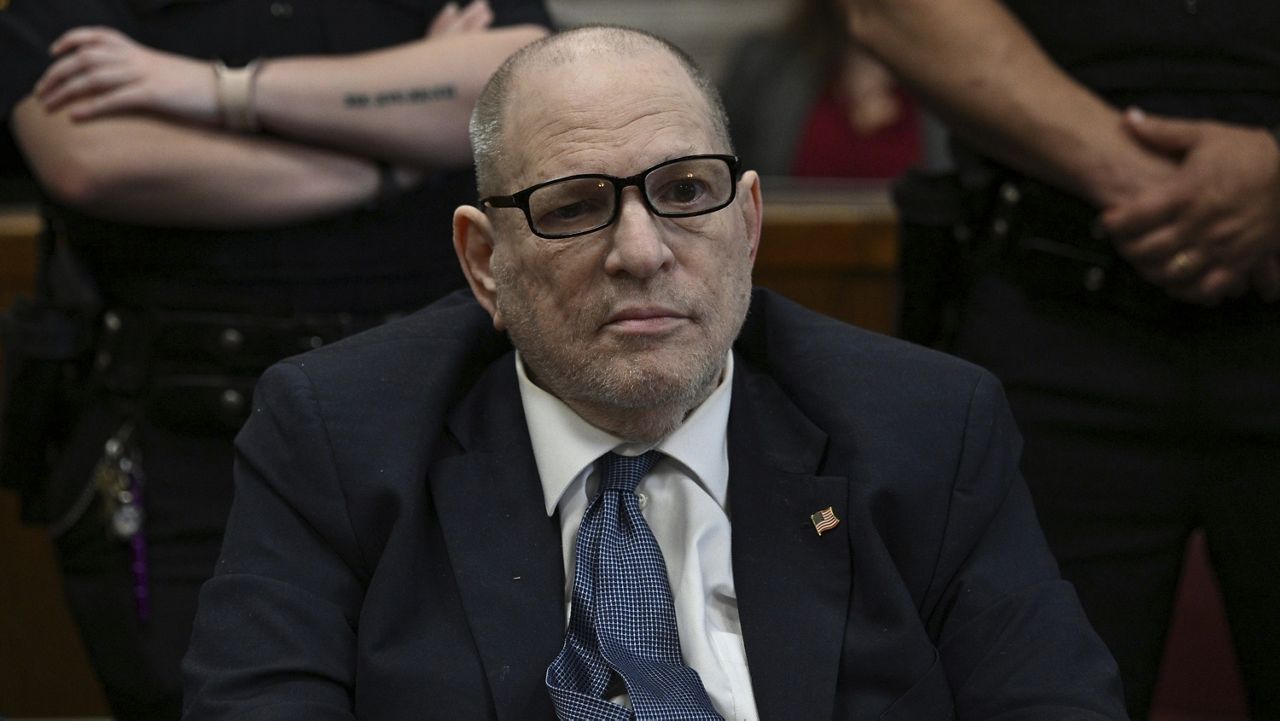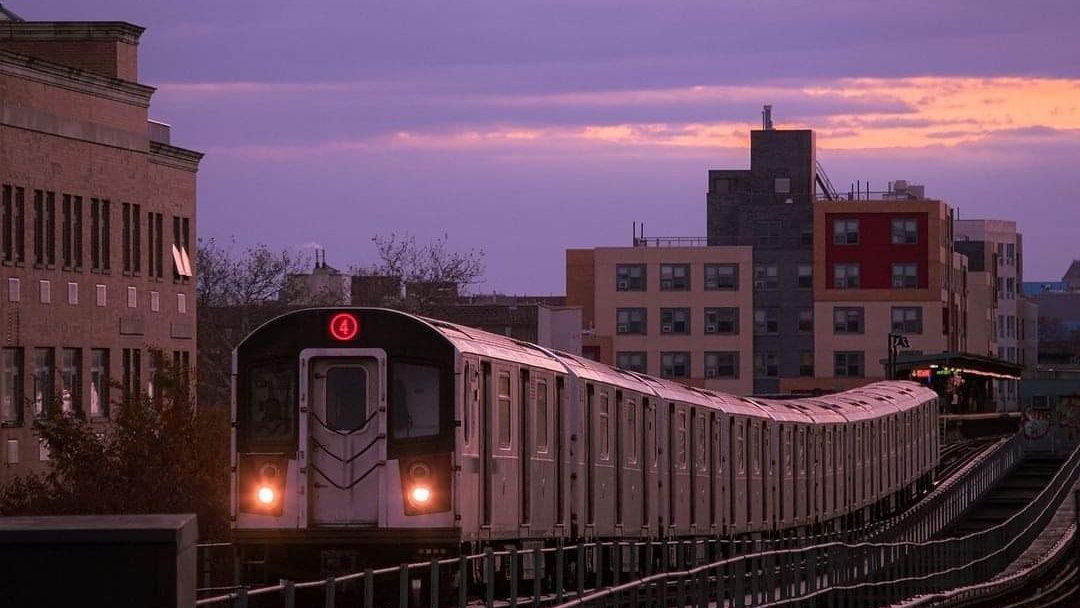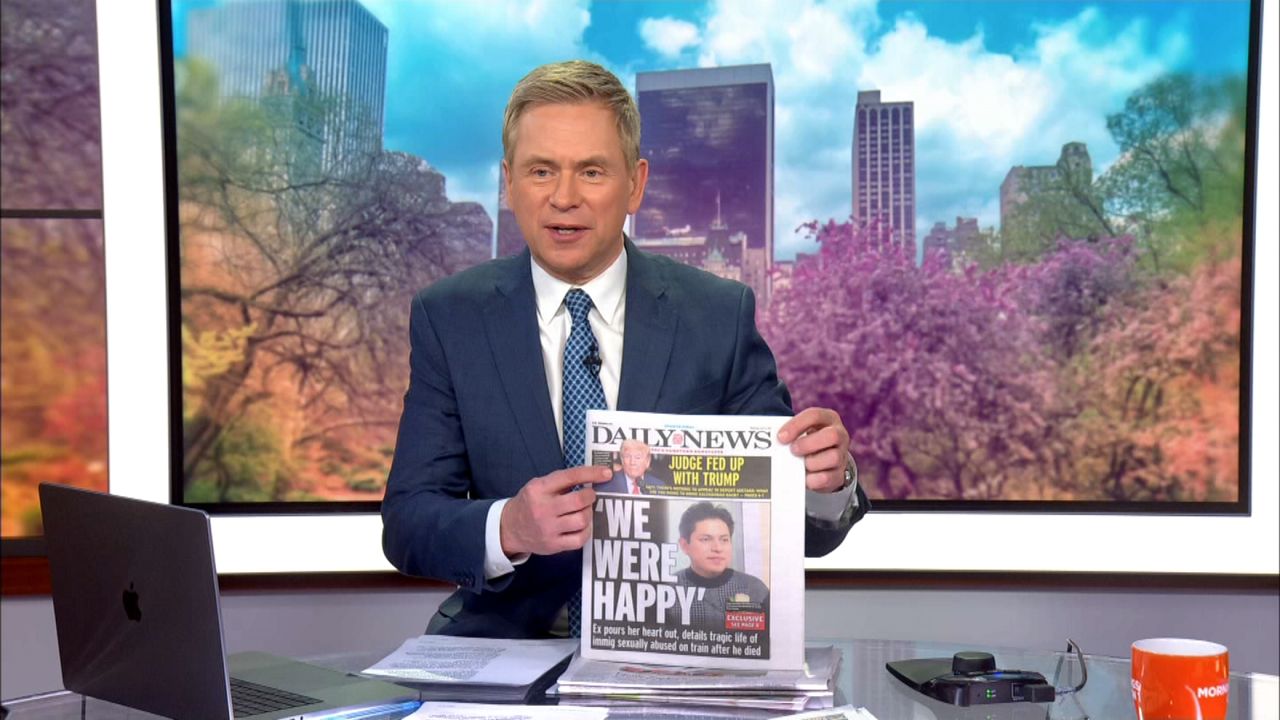After four months of running for the White House and polling at or below 1 percent, Mayor Bill de Blasio is dropping out of the 2020 presidential race.
- BONUS 'OFF TOPIC/ON POLITICS' PODCAST: Bill de Blasio Drops Out of the Race for President
- What Happened with Bill de Blasio's Presidential Campaign?
- Decision 2020: Keep up with the latest news in the race for president
DE BLASIO: 'IT'S CLEARLY NOT MY TIME'
The mayor made the announcement Friday morning in an appearance on MSNBC's "Morning Joe."
"I feel like I've contributed all I can to this election, and it's clearly not my time," de Blasio said.
Going forward, the mayor said the focus for the remaining Democratic contenders should be energizing their base.
"Everyone's going to support the eventual nominee is, and anyone who worries about a split party, that's not the problem. The irony to me from this experience firsthand, being up there with my colleagues: we don't have to worry about a lack of unity. We do need to worry about a lack of passion. If Democrats don't stand for something, do not assume people will come out and vote if they're not inspired," de Blasio added.
"The message resonated real well," de Blasio said at a news conference outside Gracie Mansion. "I wish I had more time, I wish I had more resources."
When NY1 asked de Blasio in a one-on-interview if he had any regrets running for president, he said he wished he started his campaign earlier. He entered the race later than almost all the other candidates.
"Bittersweet is the right word because, look, you never, you never want to put your heart and soul into something and have it not work out," de Blasio told NY1. "But the sweet part is I had an amazing experience and a powerful experience and I learned a lot about this country and what we can do to make it better, address the issues out there. It gave me a lot of hope, it really did. And so, I am at peace about the whole experience."
The mayor explained that he came to the conclusion to leave the race within the last 48 hours, finally seeing the writing on the wall that he would not be able to qualify for the next presidential debate, low poll numbers and anemic fundraising being the culprits.
But he defended his decision to enter the fray in the first place.
"Sure, I had New Yorkers who, you know, questioned by decision or challenged," the mayro told us. "I also had New Yorkers who were very positive about it. A lot of people appreciated what I said on that debate stage and appreciated the position I was taking. "
A campaign advisor told NY1 that de Blasio will continue to operate his political action committee, known as Fairness PAC, which was set up to spread his progressive message across the country. As of this point, it's unclear if he will personally spread that message and continue traveling.
The mayor's campaign team also received a letter from the Federal Election Commission just Thursday, asking for his campaign finances. It's unclear if that factored into de Blasio's decision to drop out.
President Donald Trump wasted no time reacting to the news, tweeting that the "part time mayor of New York City" was coming home.
De Blasio and Trump had clashed several times during the campaign trail, with the mayor taking shots at the president and calling him "Con Don," and Trump branding de Blasio the worst mayor in New York City history.
De Blasio's run was an unusual move for a New York City mayor. He was the first sitting mayor to run for president since John Lindsay in 1972 — a campaign that barely got off the ground before it fizzled out. Lindsay encountered hecklers and protesters sent from New York.
That was a familiar sight for de Blasio. The police union, for example, paid for a negative billboard to follow him on some of his travels, including at one of the debates.
POLLING BETWEEN 0 TO 1 PERCENT
De Blasio had never lost an election, but amid a 2020 field that included over 20 Democrats at its height, he was unable to break through in the polls, which consistently showed his support hovering between zero and one percent among Democrats nationally.


Earlier this month, the mayor said he would consider ending his campaign if he failed to qualify for the fourth Democratic debate in October. After qualifying for the first two debates earlier this year, the mayor failed to reach the stage for the Democratic debate in Houston because of low polling and a lack of donations, and he looked on track to miss out on the October debate. Candidates need to register two percent or more in at least four qualified polls — these include national polls, or polls conducted in Iowa, New Hampshire, South Carolina, and/or Nevada — receive donations from at least 130,000 unique donors, and receive donations from at least 200 unique donors per state in at least 20 states.
As she failed to qualify for the third debate, a fellow New York candidate, Sen. Kirsten Gillibrand, ended her campaign late last month. De Blasio's exit now means no New York elected official is in the race, although several New York natives, such as Sen. Bernie Sanders, who grew up in Brooklyn, are still in the race.
The mayor's campaign failed despite numerous trips to key early nominating states, including Iowa and New Hampshire. De Blasio also had a relatively small amount of campaign cash compared to the tens of millions of dollars other Democrats were pulling in.
NO ESCAPE FROM NEW YORK
While people observed that the mayor seemed pleased with being on the campaign trail, away from the heavy scrutiny and bad reviews of New York City, de Blasio was often unable to shake off local issues.
When an electrical disturbance at a Con Edison substation caused a massive blackout along the West Side of Manhattan in mid-June, politicians here at home jumped in. City Council Speaker Corey Johnson — who is considering a run for mayor — provided minute-by-minute updates as the blackout continued. The subways shut down, there were fears of people trapped in elevators, and there was confusion about the source of the power failure.
The mayor, however, was in Iowa, on the presidential campaign trail. The blackout illustrated one of the biggest challenges of running for president while running the biggest city in America: more than a four-hour drive from the nearest airport, de Blasio was forced to spend the night away from home. He was driven to Chicago on the evening of the blackout and made a national cable news appearance defending his absence the next morning.
"When you're a mayor or a governor, you're going to travel for a variety of reasons; the important thing is to have a hand on the wheel and make sure that things are moving effectively. Even from where I was, I was able to do that for the people of New York City," de Blasio said.
De Blasio's campaign also rolled through as NYPD Officer Daniel Pantaleo faced a departmental disciplinary trial for his role in Eric Garner's death in 2014. The mayor was pressured to fire the officer — something he couldn't escape even in another state. Protesters made their way to Detroit, chanting "Fire Pantaleo!" during de Blasio and New Jersey Sen. Cory Booker's opening remarks at the second Democratic debate on July 31 before security removed them.
Not long after, CNN moderators questioned de Blasio for not firing the officer, with the mayor repeating his defense: New York City was waiting on the departmental trial, and the Justice Department was at fault for not bringing charges.
Later that month, NYPD Commissioner James O'Neill fired Pantaleo, but the mayor was lambasted on all sides: Garner supporters said de Blasio should have fired Pantaleo years ago, while the police union called for the mayor to lose his job, arguing de Blasio had turned his back on officers.
At times, protesters followed the mayor as he made his 2020 pitch. The morning de Blasio officially launched his campaign in May, members of the NYPD union Police Benevolent Association demonstrated while he gave a national interview with Good Morning America in Manhattan, arguing the mayor should have been focused on the city and giving police officers pay raises instead of trying to become president. Their chants could be heard quietly in the background of the interview.
In June, a group of youth activists who followed the mayor to Iowa confronted him at a campaign event. They said they wanted him to change the policy of making arrests and issuing summonses in public schools. Andrea Colon, a community engagement organizer with the Rockaway Youth Taskforce, said she followed the mayor to Iowa to talk about issues she said were still unsolved back home.
Local news outlets also aggressively covered the mayor on the campaign trail, and he had more than his share of negative press coverage for his 2020 campaign launch:


The mayor was frequently accused of ignoring the city in favor of a national audience. When the mayor launched his campaign in May, New York City faced ongoing issues such as:
- Crumbling public housing
- A record number of homeless New Yorkers
- A debate over de Blasio's proposal to change admissions at the city's specialized high schools
"I don't know how to explain to people," de Blasio told NY1. "I've tried and obviously I don't know if some of the folks observing are not listening or I am not articulating it clearly enough. But if you go issue by issue, the things that had to be put in place to address each issue, I remained consistently focused on them."
Overall, New York City voters didn't approve of the idea of a presidential run. 76 percent said they didn't want him to run, according to an April Quinnipiac poll. Despite the data and warnings from allies, de Blasio argued he had a message that resonates with voters, and he reminded people he was an underdog in the Democratic primary for mayor in 2013.
A chorus of New Yorkers slammed the mayor's chances, arguing he had plenty of other things to focus on at home.
TO THE LEFT
With much of the Democratic Party appearing to move to the left, many presidential candidates have tried to portray themselves as progressive. Support for universal health care, abortion rights, legalizing marijuana, the "Green New Deal," and rejecting corporate money in elections have become measures for the Democrats.
Not to be outdone, particularly since he espoused some of these policy pegs years ago, de Blasio tried to trumpet his support of some far-left policy ideas, particularly on health care. He was one of the few candidates who unabashedly supported scrapping the private insurance market for a single-payer "Medicare for All."
"Private insurance is not working for tens of millions of Americans. When you talk about the copays, the deductibles, the premiums, the out-of-pocket expenses, it's not working," de Blasio told former Texas Rep. Beto O'Rourke during the first primary debate in June in Miami. "How can you defend a system that's not working?"
Among de Blasio's rhetorical techniques on the campaign trail: arguing he was a progressive who was more than just talk, trying to convince voters that passing a progressive agenda in a city with over eight million people made him particularly qualified to be president.
------
Looking for an easy way to learn about the issues affecting New York City?
Listen to our "Off Topic/On Politics" podcast: Apple Podcasts | Google Play | Spotify | iHeartRadio | Stitcher | RSS









